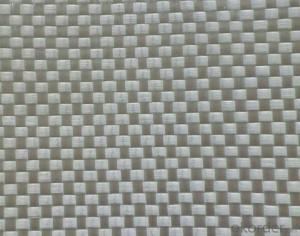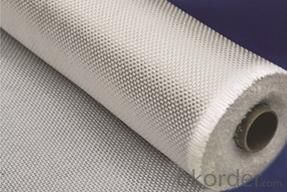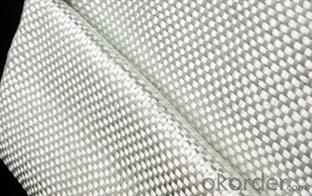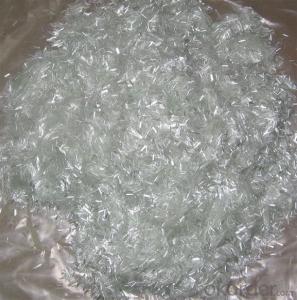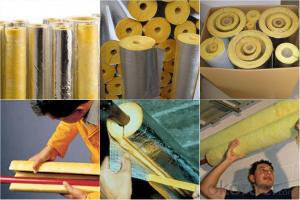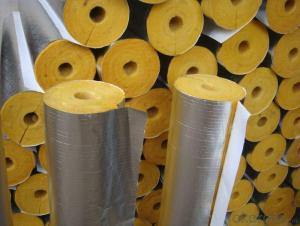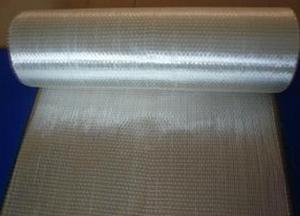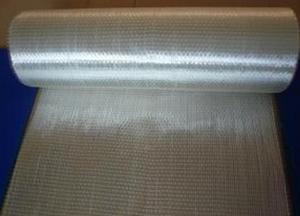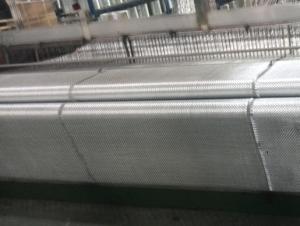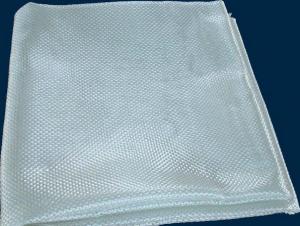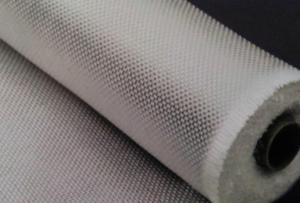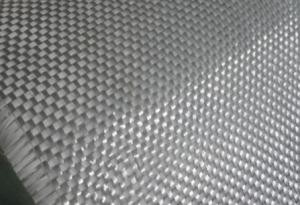Fiberglass Mat Tissue EWR 600g/m2-1000mm E Glass Fiberglass Woven Roving
- Loading Port:
- Shanghai
- Payment Terms:
- TT or LC
- Min Order Qty:
- 2000 m²
- Supply Capability:
- 50000 m²/month
OKorder Service Pledge
OKorder Financial Service
You Might Also Like
Structure of woven roving Description
1,high strenth,corosion and resistence
2,consistent thickness,no fuzz
3,rapid impregnating
4,ISO9001:2008
Glass woven rovings are bidirectional fabric by direct rovings in plain weave pattern. They are
applicable for hand lay-up,
winding and compress molding process, suitable for manufacturing tank, boat, automobile parts
and other FRP products.
Main Features of the woven roving
Consistent thickness and excellent surface treatment.
Rapid impregnating and good compatibility with resin.
Uniform tension, high dimensional stability and making handing easy.
Good mechanical properties and high strength of parts.
ISO9001 certificated
Woven roving Images
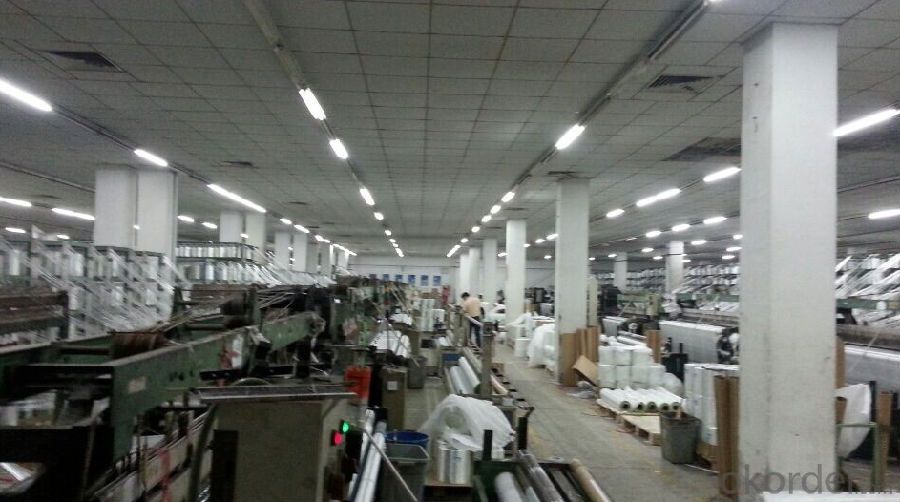
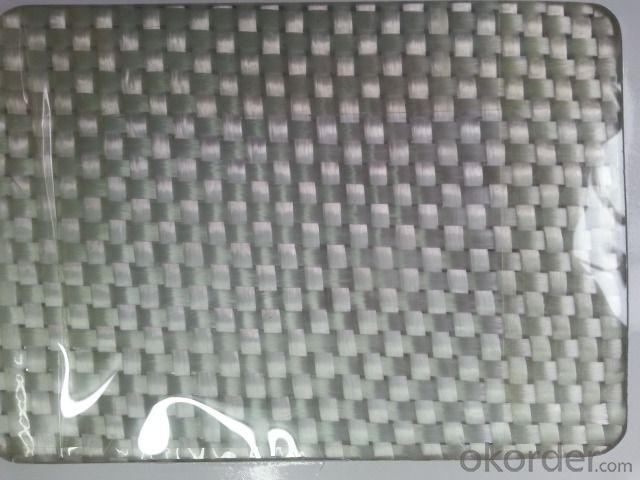
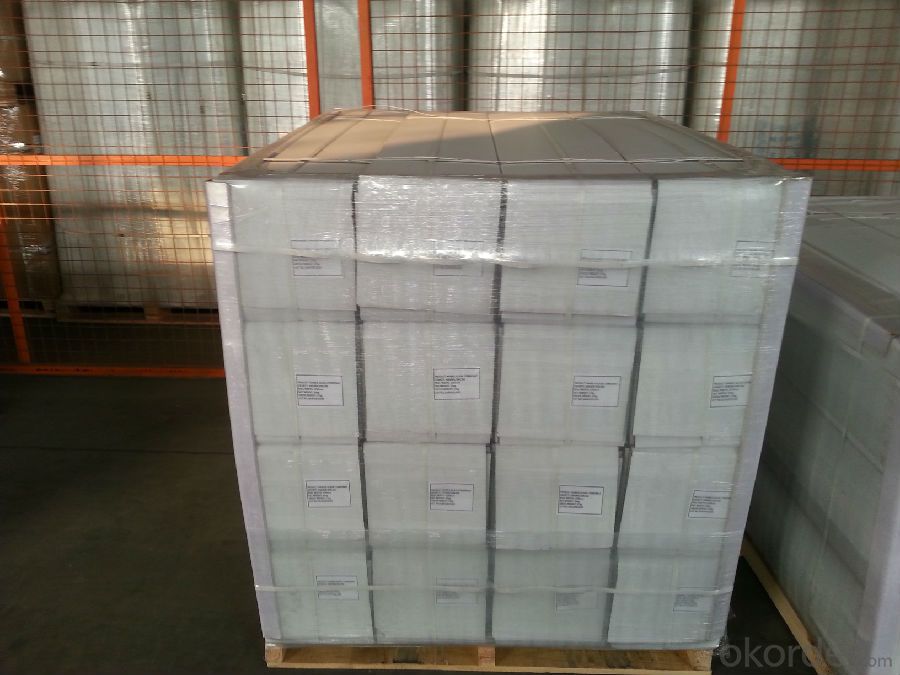
Woven roving Specification: weight& thickness
Normal type | EWR800-1000 | Test Standard |
Apperance | Good | GB/T 18370-2001 |
Density(warpxweft)(end/cm) | 1.8 X 1.5 | GB/T 7689.2-2001 |
Tex (warpxweft) | 2400x2400 | ISO1889 |
Moisture content(%) | ≤0.10 | ISO3344 |
Loss on ignition(%) | 0.40-0.80 | ISO1887 |
Glass | E-glass | N/A |
FAQ of woven roving:
Delivery Detail: 15-21days
Other spec. can be custom made as per customer's request.
- Q: How is fiberglass mat tissue used in the production of pipes and tanks?
- Fiberglass mat tissue is used in the production of pipes and tanks as a reinforcement material. It is applied to the surface of the pipes or tanks to enhance their strength, durability, and resistance to corrosion. The mat tissue provides additional structural support and helps to prevent cracking and leakage, ensuring the longevity and reliability of the pipes and tanks.
- Q: Can fiberglass mat tissue be used for architectural facades?
- Yes, fiberglass mat tissue can be used for architectural facades. Fiberglass mat tissue is a lightweight and flexible material that is commonly used in various construction applications, including architectural facades. It offers several advantages such as high strength, durability, weather resistance, and fire resistance. Additionally, fiberglass mat tissue can be easily molded into different shapes and sizes, making it suitable for architectural designs that require unique and intricate facades. Its versatility and aesthetic appeal make it a popular choice among architects and designers for creating visually appealing and functional facades.
- Q: Can fiberglass mat tissue be used for pipe wrapping?
- Pipe wrapping can indeed utilize fiberglass mat tissue, a lightweight and flexible material extensively employed in reinforcing and safeguarding various structures, including pipes. The primary purpose of fiberglass mat tissue is to enhance the pipes' strength and durability, thereby rendering them more resilient to damage and corrosion. Wrapping the pipe with fiberglass mat tissue is a simple process that creates a protective layer, effectively preventing leaks and prolonging the pipe's lifespan. Moreover, fiberglass mat tissue is renowned for its remarkable insulation properties, contributing to the maintenance of the contents' temperature as they flow through the pipe. Consequently, fiberglass mat tissue serves as a suitable material for pipe wrapping and finds widespread application across diverse industries.
- Q: Is fiberglass mat tissue compatible with different resin systems?
- Fiberglass mat tissue is indeed compatible with different resin systems. This versatile material can be utilized with a variety of resin systems, such as polyester, epoxy, and vinyl ester resins. Its exceptional wet-out properties enable the resin to be absorbed and distributed evenly throughout the mat. Consequently, this compatibility facilitates the fabrication of robust and long-lasting composite structures for numerous industries, including automotive, marine, construction, and aerospace. Nevertheless, it is crucial to carefully assess the unique properties and characteristics of the resin system employed to guarantee optimal performance and compatibility with the fiberglass mat tissue.
- Q: How does the density of fiberglass mat tissue impact its performance?
- The density of fiberglass mat tissue significantly affects its performance. Fiberglass mat tissue is a nonwoven material composed of randomly dispersed glass fibers held together by a binder. The density of the tissue refers to the amount of fibers present in a given volume of the material. A higher density of fiberglass mat tissue generally results in improved mechanical properties and performance. The increased density means that there are more glass fibers per unit volume, leading to enhanced strength, stiffness, and durability. This makes the material more resistant to tearing, puncturing, and abrasion, which is particularly important in applications where the tissue is exposed to harsh conditions or heavy loads. Moreover, a higher-density fiberglass mat tissue offers better thermal insulation properties. The increased fiber content allows for better heat resistance, making it suitable for applications that require thermal protection, such as insulation boards or fireproofing materials. On the other hand, a lower density of fiberglass mat tissue may provide advantages in certain applications. Lower-density tissues are generally more flexible and have better conformability, allowing them to easily adapt to irregular surfaces or complex shapes. This makes them suitable for applications where flexibility or conformability is a primary requirement, such as in automotive or aerospace industries. Overall, the density of fiberglass mat tissue plays a crucial role in determining its performance characteristics. Whether a higher or lower density is preferred depends on the specific application requirements, considering factors such as strength, stiffness, durability, thermal insulation, flexibility, and conformability.
- Q: Can fiberglass mat tissue be used for electrical insulation?
- Yes, fiberglass mat tissue can be used for electrical insulation. Fiberglass mat tissue is a non-woven fabric made from fine glass fibers, and it has excellent electrical insulation properties. It is capable of withstanding high temperatures and has a high dielectric strength, making it suitable for various electrical applications. It is commonly used as an insulation material in electrical transformers, motors, generators, and other electrical equipment. The fiberglass mat tissue provides a barrier that prevents the flow of electrical current and protects the components from electrical shocks or short circuits. Additionally, it is also resistant to moisture, chemicals, and UV radiation, further enhancing its suitability for electrical insulation.
- Q: How is fiberglass mat tissue used in the production of storage containers?
- The unique properties and benefits of fiberglass mat tissue make it a common choice in the production of storage containers. This thin layer of non-woven glass fibers offers excellent strength and durability, reinforcing the structure of the containers and ensuring they can withstand heavy loads without deforming. In addition to its strength, fiberglass mat tissue is highly resistant to corrosion, moisture, and chemicals. This makes it perfect for storage containers that may be exposed to harsh environments or contain corrosive substances. By acting as a protective barrier, the fiberglass mat tissue prevents any potential damage or degradation to the container. Furthermore, fiberglass mat tissue is lightweight, making it easier and more cost-effective to transport and handle during production. It also helps reduce the overall weight of the storage container, allowing for increased payload capacity and more efficient storage and transportation. During the molding process, the fiberglass mat tissue is typically applied to the surface of the container. It is often impregnated with a resin or adhesive, which, when cured, creates a strong bond with the container, enhancing its structural integrity. Overall, fiberglass mat tissue is crucial for the production of high-quality and long-lasting storage containers. Its strength, durability, corrosion resistance, and weight reduction capabilities make it the preferred choice for manufacturers in this industry.
- Q: How does the width and length of fiberglass mat tissue affect its application?
- The width and length of fiberglass mat tissue can affect its application by determining how easily it can be cut and maneuvered during installation. A wider and longer mat tissue may provide better coverage on larger surfaces, reducing the need for multiple pieces and potentially saving time and effort. Additionally, the length of the mat tissue can influence its strength and stability, as longer fibers may provide better reinforcement properties. Ultimately, the choice of width and length should be based on the specific requirements of the application, such as the size of the area to be covered or the desired level of reinforcement.
- Q: What is the weight of fiberglass mat tissue per square meter?
- The weight per square meter of fiberglass mat tissue may differ based on the particular product and manufacturer. Typically, the weight of fiberglass mat tissues can range from 100 grams per square meter (gsm) to 900 gsm. Nevertheless, it should be noted that in certain instances, the weight may also be expressed in ounces per square yard (oz/yd²). To ascertain the precise weight of a particular fiberglass mat tissue, it is advisable to consult the manufacturer's provided product specifications.
- Q: Is fiberglass mat tissue suitable for automotive applications?
- Yes, fiberglass mat tissue is suitable for automotive applications. Fiberglass mat tissue is a versatile material that offers numerous benefits when used in automotive applications. It provides excellent strength and durability, which is essential for automotive parts that need to withstand harsh conditions and heavy usage. Fiberglass mat tissue also has good thermal and electrical insulation properties, making it suitable for applications where temperature resistance and electrical insulation are required. Additionally, fiberglass mat tissue is lightweight, which can help improve fuel efficiency and overall vehicle performance. It is also easy to mold and shape, allowing manufacturers to create complex automotive parts with precision. Furthermore, fiberglass mat tissue is resistant to corrosion, chemicals, and UV radiation, ensuring the longevity and reliability of automotive components. Overall, the unique properties of fiberglass mat tissue make it an ideal choice for various automotive applications, including but not limited to body panels, interior components, structural reinforcements, and sound insulation. Its strength, durability, insulation properties, lightweight nature, and resistance to corrosion and chemicals make it a reliable and cost-effective material for the automotive industry.
Send your message to us
Fiberglass Mat Tissue EWR 600g/m2-1000mm E Glass Fiberglass Woven Roving
- Loading Port:
- Shanghai
- Payment Terms:
- TT or LC
- Min Order Qty:
- 2000 m²
- Supply Capability:
- 50000 m²/month
OKorder Service Pledge
OKorder Financial Service
Similar products
Hot products
Hot Searches
Related keywords
